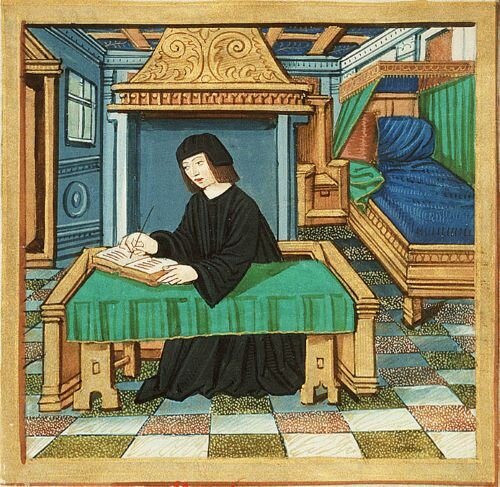May 17th 1471: The Long Journey Home

Philippe de Commines, Statesman and Historian
We know nothing about King Edward’s march to London beyond the fact that it took him five days. They were following the road they had followed on the way to Barnet just a few weeks earlier, but now there was much less urgency.
As they marched, they must have reflected on the drama of the last weeks, and be relieved that all the news was positive and that the last resistance to Yorkist rule had crumbled. Phillipe de Commines, French statesman and historian, summed it up neatly, if not completely accurately:
As soon as King Edward had obtained this victory [Barnet], he marched against the Prince of Wales, and there he had another great battle; for though the Prince of Wales's army was more numerous than the king's, yet King Edward got the victory; and the Prince of Wales, several other great lords, and a great number of common soldiers, were killed upon the spot, and the Duke of Somerset, being taken, was beheaded the next day. In eleven days the Earl of Warwick had gained the whole kingdom of England, or at least reduced it to his obedience. In twenty-one days King Edward recovered it again, but it cost him two great and desperate battles to regain it. And thus you have an account of the revolutions of England. King Edward caused numbers of persons to be put to death in many places, especially those that were guilty of any confederacy against him. Of all nations in the world, the English are most inclined to such battles.
Now, they could all look forward to putting away the trappings of war once they returned home and life could return to normal. The nightmare was over. It was like the end of a pandemic.


No comments:
Post a Comment